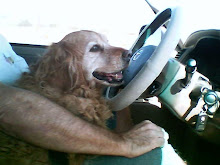Most of us have a rear-view mirror talent to see what we should have said at a critical time, like when the boss was accusing us of something we didn't do. I had a really Crazy Boss once that gave me a stern lecture about 'attempting to shirk my duties' when his boss directed me to do two different things on the same day, same time, but 500 miles apart. I could not delegate either assignment to a subordinate because both required knowledge that my 3 new employees did not have. When I asked his boss if the second assignment therefore relieved me of going to the one 500 miles away, she said yes. That's what we call being properly relieved of the duty in military circles.
Crazy Boss called it 'trying to shirk my responsibilities.' Rather than argue with a crazy person, as I had seen the trend by then, I took some lumps I did not deserve. That is self-observation and a response of not escalating a bad situation. Instead, I waited a few days and spoke with the Crazy Boss's boss, 'apologized' and clarified to be sure she did not see my request to clarify relief as 'shirking my duties.' She was stunned by the question. I briefly related what happened and the ranting reprimand by my direct Crazy Boss. She then shared with me that she, too, had seen the erratic behavior and was working on a solution. She asked me to 'hang in there' and it would be fixed. It was and did not affect my performance record.
By observing myself, my reactions and managing my behavior, real-time, I avoided a situation that could have gotten me fired. I saw myself getting angry and frustrated with Crazy Boss. I stifled the desire to argue with him, which likely would have resulted in a reprimand for insubordination. I took some crap I did not deserve, but was stronger for it in the long run. Turns out the man was in the early stages of dementia and was expressing a lot of confusion and anger in the workplace. He couldn't direct it toward his boss, so I was the target du jour. He retired soon after.
That, in a nutshell is an example of basic self-observation. It is the ability to dispassionately observe yourself, how you are feeling, and decide how to react to both. Freed from the shackles of blindly acting on our emotions, things change. Here are a couple of websites that provide more info about the skill: One from Penn State and this more esoteric one.
As I learned self-observation skills, I had some references to help identify my emotions. A great one is The Passions (1983 version) by Robert Solomon. Chapter 11 is about 90 pages clearly describing a number of emotions (and strategies on responding or overcoming those emotions) in a way that you can catalogue your feelings. Please note, this is not about wallowing in your emotions. The process of self-observation helps you do the opposite: see what you are feeling or what is motivating your behavior and making a conscious decision about whether that is likely to accomplish your goals in the interaction. It enabled me to observe and say things to myself like "this is me getting really angry" or "I am so sad I want to cry." I then could choose whether to show anger or cry, or say to myself that those actions are not appropriate to the situation and behave differently. It is a tool that can enhance your self-discipline and effectiveness.
One of the first times I practiced this in real life was when I needed help from a dreaded customer support telecenter. When I was finally answered, I very calmly told the service rep that I was an irate customer and wanted to speak to a supervisor. She actually put me right though and the supervisor made things right.
Have you ever experience a situation when some one's reaction to a situation is inappropriate or really not proportional to whatever just happened? It is often from unresolved, pent-up emotion from some situation in the past where the person was hurt or wronged. This energy is unleashed inappropriately and automatically into an unrelated situation. It is difficult to refrain from reacting to that outburst and escalating the situation. Self-observation can help you reduce the energy and diffuse the interaction. You can learn and understand if you are doing the same thing and start to avoid the negative responses that leave both parties wondering what the heck just happened. I have seen the technique, when used in coaching married couples, bring the couple back from the brink of divorce.
One way to start learning to self-observe is to stop yourself periodically using a timer or alarm. When it goes off, stop to jot down how your are feeling at the moment. Once that gets easier, add how you are behaving or acting and whether your observed emotion is influencing your actions or behavior. Last step is whether those actions are appropriate to the situation. Repetition of these steps will help make them automatic skill behaviors, like catching a ball.
You will need to be persistent to learn this skill, and it may never come completely naturally. Just as we make ourselves go to work or eat our vegies, just know it is something that's worth the effort.
One additional bit of wisdom gained from growing older and using these skills is that compassion does not always appear to be kindness. It is providing appropriate help for someone who needs it, and who needs to grow. Sometimes compassion can look like being a jerk, like not giving a drunken alcoholic another drink or not loaning a chronic gambler the money to 'pay the rent.' Sometimes someone needs to suffer through a problem of their own making for them to learn and grow.
As an aside, some of these websites reference eastern mystics or non-Christian religions. I have practiced these skills for about 20 years and find that they enhance my ability to live a more Christian life and be more charitable when needed. They do not detract from or contradict my faith at all, and have enhanced it. For Christians, learning not to be ruled by your emotions is another potential skill toward allowing the Holy Spirit to guide your actions if you so desire. For everyone, the skill can be valuable.
Getting prepped
3 years ago





interesting post! I subscribe to the "zen and the art of screaming your guts out" approach but am always open to new ideas. thanks for being my friend MM
ReplyDeleteYou are so funny! That should be the title for one of your posts some day. For those of us who are physically unassuming (wimpy woman-sized), this is plan B!
DeleteI love reading through your blog and look forward to all your posts!
ReplyDeleteบาคาร่า
gclub จีคลับ
gclub casino
ปรับรูปหน้าเรียว
ReplyDeleteฉีดหน้าเรียว ลดริ้วรอย เป็น
ต้องการ
หน้าเรียวทำเป็น
ยังไง
ผู้คนจำนวนมาก
คงจะ
กำเนิด
ปริศนา
นี้
และก็
การฉีดลดหน้าเรียวด้วยโบท็อกก็เป็นขั้นตอนการ
รักษาที่ทำเป็น
ง่าย โดยไม่ต้องผ่าตัด
สารารถยนต์
ช่วยลดลางเลือน
ริ้วรอยรวมทั้ง
ร่องลึกได้ภายในช่วงระยะเวลา
เร็ว
ได้ผล
การดูแลรักษา
ที่น่าพอใจ
ละสร้างความมั่นใจและความเชื่อมั่น
ให้กับผู้มีปัญหาได้อย่างดีเยี่ยม
ฉีดหน้าเรียว ปรับรูปหน้า
ฉีดหน้าเรียว ที่ไหนดี
ฉีดหน้าเรียว pantip
ร้อยไหม
ReplyDeleteร้อยไหมปรับรูปหน้า ปรับรูปหน้าที่ไหไนดี ร้อยไหมที่ไหนดี? กังนัมคลินิกคือคำตอบไม่ว่าจะเป็น ร้อยไหมหน้าเรียว เป็นวีไลน์แบบเกาหลีด้วยไหมก้างปลา ให้คุณสวยแบบเกาหลี ลดอายุ หน้าเด็ก ไม่เจ็บ ไม่ช้ำ ไม่บวม หน้าเป็นวีเชฟ ลดเหนียง เหนียงกระชับสมใจ
ร้อยไหมก้างปลา
ร้อยไหม ปรับรูปหน้า
ร้อยไหม pantip